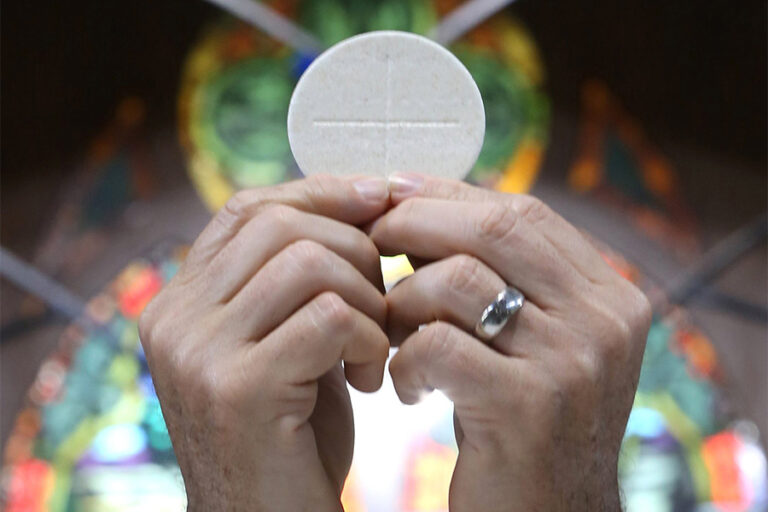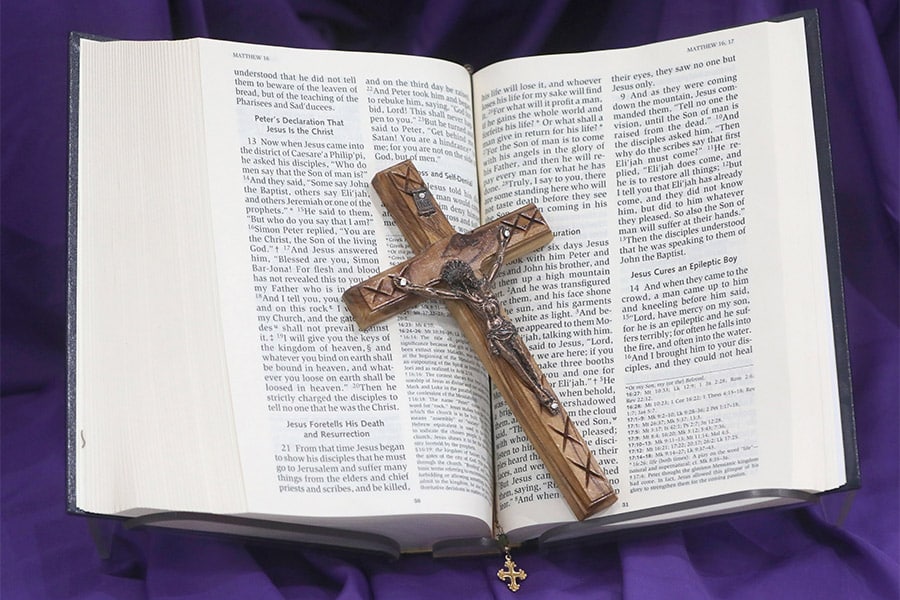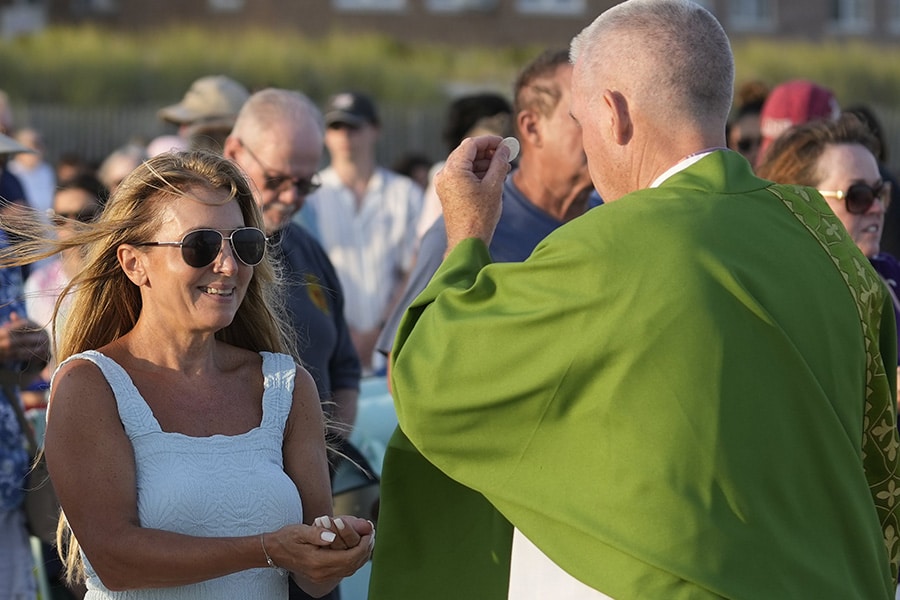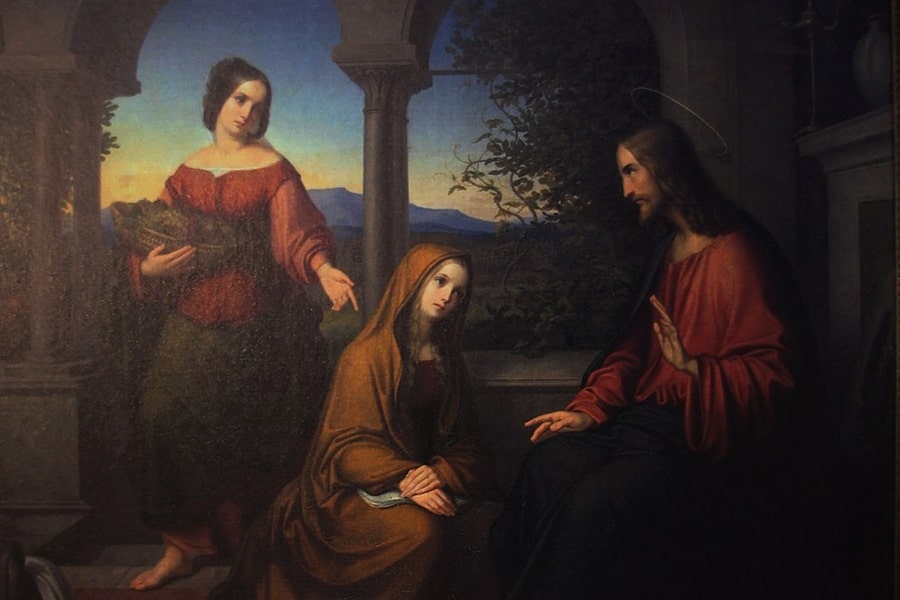The English author G.K. Chesterton (1874-1936) was a constant source of wisdom and encouragement while I was trying to figure out “the Catholic thing” years ago. One of my favorite Chesterton books is titled “The Thing: Why I Am a Catholic.” Chesterton is known for employing paradox and unexpected points of comparison and contrast. In “The Thing,” he applied this gift to the matter of the Incarnation and the Eucharist. Chesterton, among other things, was also a very good theologian.
“Heaven,” he wrote, “has descended into the world of matter; the supreme spiritual power is now operating by the machinery of matter, dealing miraculously with the bodies and souls of men.”
In a real way, that is a commentary on the entire Gospel of John, which is deeply sacramental. Responding to a Protestant critic who denied that the Eucharist is the true body, blood, soul and divinity of Jesus Christ, Chesterton stated that he cannot understand why Protestants do not see “that the Incarnation is as much a part of that idea as the Mass; and that the Mass is as much a part of that idea as the Incarnation.” A Puritan “may think it blasphemous that God should become a wafer,” but that stance is an illogical prejudice against the notion that “the miraculous should descend to the plane of matter … .”
Put another way, to say the Eucharist cannot be Jesus Christ is a denial of several things: the words of Christ, as we hear in today’s Gospel; the tradition of the church; the power of God to become man; and the goodness of the created world itself. Chesterton emphasized the latter two points: “If it be profane that the miraculous should descend to the plane of matter, then certainly Catholicism is profane; and Protestantism is profane; and Christianity is profane.” If God did, in fact, become man and dwell among us (see John 1), then heaven has invaded earth with a passionate abandon, a sort of divine recklessness, that changes everything. Everything!
This is heaven invading earth: “I am the living bread that came down from heaven; whoever eats this bread will live forever; and the bread that I will give is my flesh for the life of the world” (Jn 6:51). That is a direct assault on our tidy divisions between the ordinary and divine. There is no reservation about bread being boring and wine being vulgar; on the contrary, bread will become the flesh of the King of Kings, and wine will become the blood of the Lord of the universe.
Why? Because the Triune God is Creator, Giver and Lover. He created out of love, which is his very essence. God, says the catechism, “has no other reason for creating than his love and goodness: ‘Creatures came into existence when the key of love opened his hand'” (CCC, No. 293). God desires to feed us, but he doesn’t want us to settle for mere bread, not even miraculous bread, as we hear in the first reading. For we cannot really live by bread alone, but live, ultimately, “by all that comes forth from the mouth of the Lord” (Dt 8:3).
And who is the word who comes forth from the mouth of the Lord? Jesus Christ, who is the bread from heaven. Heaven, indeed, has descended into the world of matter, and we partake of the very King of Heaven, under the form of the most ordinary bread.
Read More Commentary
Copyright © 2024 OSV News








